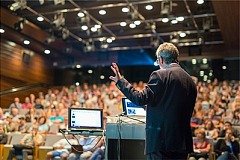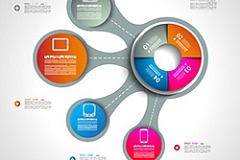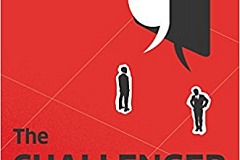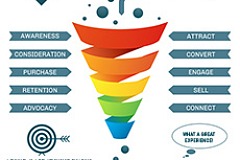Coach Phil: Lou, I've been reflecting on our discussions about the power of beliefs and their profound impact on both perception and health. How exactly do these beliefs about health and medicine work to heal or harm us?
Lou Tice: Phil, it's fascinating. Our beliefs can harness the body's chemical mechanisms. If you believe you're taking a powerful medicine that is inert and has no tangible benefit, your mind will predispose you to believe it does work. This placebo effect works on symptoms modulated by the brain, like the perception of pain. This is the placebo effect in action. Conversely, if you're convinced something will harm you, your body might generate a stress response that can indeed make you sick – the nocebo effect.
Coach Phil: That's incredible. It seems then that those in positions of power, like doctors or authority figures, play a significant role in shaping these beliefs. How does this dynamic affect our perception and behaviour beyond health?
Lou Tice: Their impact is vast, Phil. When someone we view as an authority – whether a doctor, teacher, or leader - expresses a belief or expectation about us, we're inclined to internalize it. This can affect our self-perception and our performance either positively or negatively across various areas of life. Their beliefs can set the bar for what we believe is possible for ourselves.
Coach Phil: So, surrounding ourselves with high achievers and positive influencers could help us adopt more empowering beliefs and standards?
Lou Tice: Exactly, Phil. By assimilating the standards and beliefs of high performers, you can elevate your performance and aspirations. It's about creating an environment where excellence is the norm, and limitations are questioned rather than accepted.
Coach Phil: I remember you mentioned that our personal experiences and interactions also play a role in forming our beliefs. Could you elaborate on how this affects our potential?
Lou Tice: Your beliefs are like a filter for your reality, Phil. They're built over time, layer by layer, from personal experiences and social interactions. If these experiences are positive and affirming, you're more likely to develop beliefs that support your growth and potential. However, negative interactions, especially those from childhood, can plant seeds of self-doubt and limit what you think you're capable of.
We feel that we have three areas in our mind although they don’t exist separately: the conscious mind, the subconscious mind, and the creative subconscious mind.
Our creative subconscious mind's role is to maintain our sanity; it keeps us in our isness in our habitual thinking, it’s automatic. If you see yourself as a $3,000-a-month person and you make more than that, you will find creative ways to get back to where you belong, or if you have a shortfall of less than the $3,000, you'll look for ways to get back to where you belong as a $3,000-a-month person
We're like the thermostat in your home. We set the temperature range between 68 and 72 degrees; that's our comfort zone. If your house gets colder than the set point of 68, the furnace kicks in to get it back in the 68-72 range. If it gets hotter than 72 degrees, the A/C cools your home to the 68-72 range.
The good news is you can change your set point. This is why setting goals is so important.
Coach Phil: That makes me think about the significance of affirmations and cognitive dissonance in altering our beliefs. Can you shed light on how affirmations work to change deeply entrenched beliefs?
Lou Tice: Affirmations, Phil, are powerful tools for belief change. They create a cognitive dissonance – a discomfort between what you believe and the new information or affirmation you're introducing. Regularly reinforcing positive affirmations can rewire your brain, aligning your beliefs more closely with your aspirations.
Coach Phil: And how do these principles apply to scenarios outside health, like in rituals or ceremonies?
Lou Tice: In rituals, like a wedding ceremony, the authority figure – be it a rabbi, priest, or minister – uses the power of belief to legitimize relationships in societal and personal perceptions. It demonstrates how belief underpins even the rituals that govern social behaviour and legal standings.
Coach Phil: This explains paradigms like the one about medical students. After graduating and receiving their diploma, they feel empowered to perform surgeries. But before going through the ceremony and getting their “certificate,” they don't feel like they are doctors. This highlights the necessity of believing in ourselves without waiting for external validation. How can we cultivate this inner belief, Lou?
Lou Tice: Self-empowerment starts with recognizing the “wizards” in our own lives – the external validators, and choosing instead to affirm our capabilities and worth. It's about embracing the idea that “I am off to be the wizard,” meaning recognizing our power to shape our beliefs and our lives.
Coach Phil: Lou, this conversation illuminates the intrinsic power of beliefs and their ability to shape our reality. I'm inspired to scrutinize and nurture my beliefs more consciously, fostering ones that support growth and empowerment. Thank you for this insightful dialogue.
Lou Tice: Phil, the pleasure is all mine. Remember, the journey of understanding and reshaping beliefs is ongoing. Keep pushing the boundaries of what you believe is possible, and you'll continue to unlock an ever-greater potential within yourself.
-courtesy Coach Phil
Lou Tice was an educator and coach. Along with his wife Diane Tice, they co-founded the Pacific Institute, an organization dedicated to performance improvement and professional development. His work often revolved around the concepts of self-esteem, goal-setting, and leadership.
This is a series of articles around what I feel Lou would share with me today if he were still with us. His impact on the world and me was wonderful! His legacy lives on through the many people The Pacific Institute impacted, including Businesses and sports Teams, reducing the numbers on welfare systems, reducing recidivism, Apartheid in South Africa, and transitioning from a communist regime.
Lou Tice firmly believed that we become what we think about most of the time, and his teachings centered around using our thoughts to shape a better reality for ourselves.














